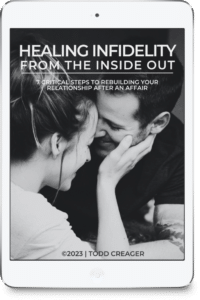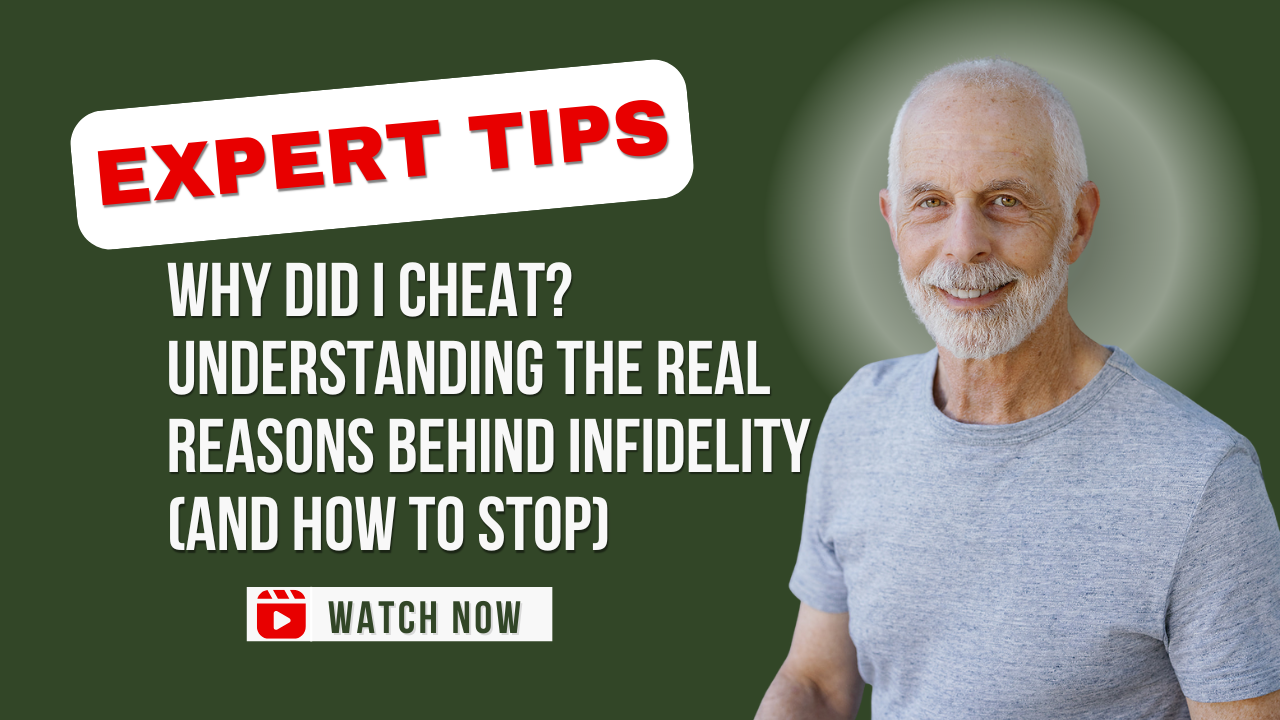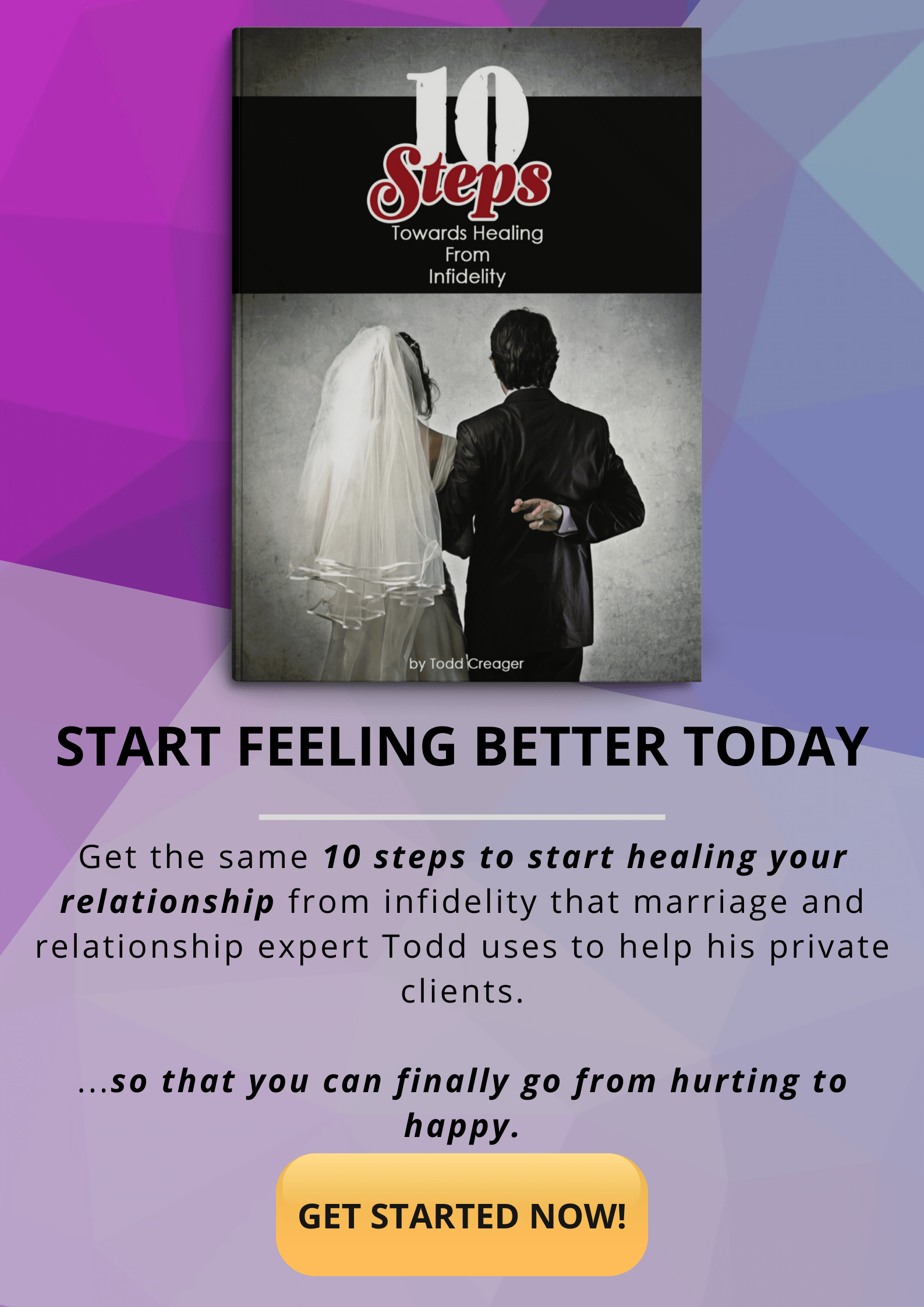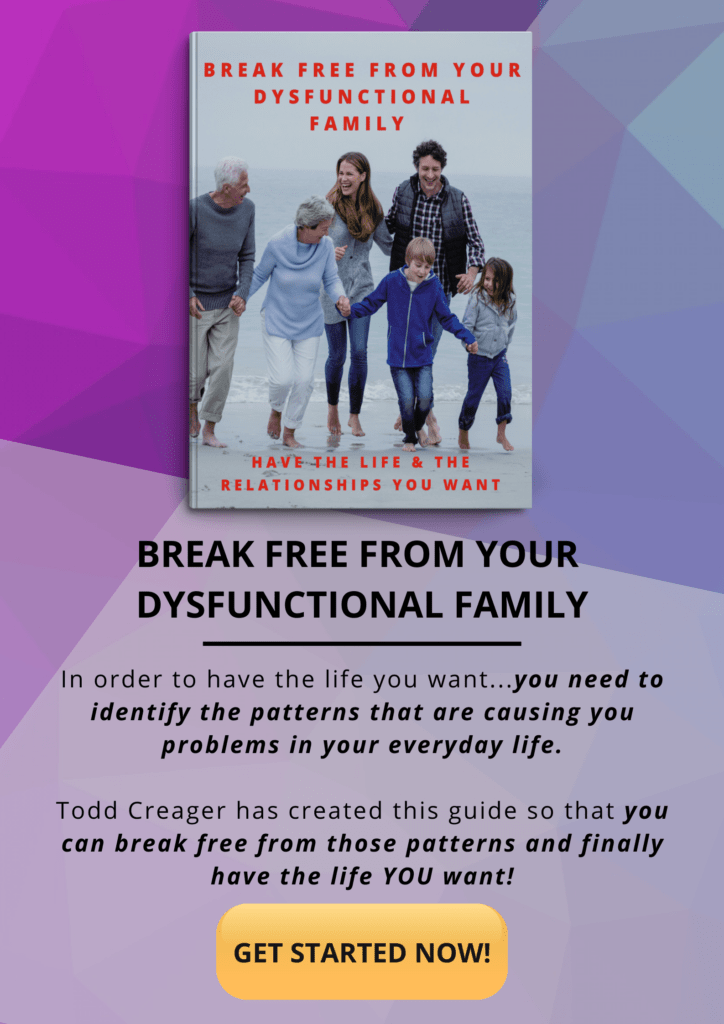If you’ve betrayed your partner, you’re probably asking yourself the hardest question: “Why did I cheat?”
Maybe it happened once. Maybe it’s happened multiple times. Either way, you’re dealing with shame, confusion, and the overwhelming fear that you might be fundamentally broken.
Here’s what I’ve learned after decades of working with people who are asking why did I cheat: You’re not a terrible person. You’re not broken. But you are disconnected—from yourself, from your partner, and from the values you thought you held.
What You Need to Know When You Ask Yourself Why Did I Cheat?
→ Infidelity typically stems from unprocessed emotional pain and learned patterns of self-regulation that sabotage relationships
→ You’re likely disconnected from parts of yourself that are trying to solve old problems in destructive ways
→ Recovery requires awareness, processing underlying pain, and reconnecting with both yourself and your partner
→ Self-forgiveness is possible, but only after you’ve done the real work of understanding and healing
But here’s what most people miss when asking the question why did I cheat:
→ The part of you that cheated isn’t your “true self”—it’s often a younger, wounded part operating independently from your conscious values
→ Simply feeling guilty doesn’t prevent repeat behavior; unprocessed shame actually increases the likelihood of acting out again
→ Your partner can’t forgive you until they feel safe, and you can’t make them feel safe until you understand what drove your behavior in the first place
What this article covers: I’m focusing specifically on the internal work required if you’ve been unfaithful.
This isn’t about blame or excuses.
It’s about the deep self-understanding and genuine accountability that makes real change possible. Whether you’re the person who betrayed or the betrayed partner trying to understand, this perspective can help you see what’s really happening beneath the surface.
The Question That Keeps You Up at Night: “Why Did I Cheat on My Partner?”
You might have heard this before, but let me say it plainly: Infidelity begins in childhood.
That sounds dramatic, I know. Maybe even like I’m letting you off the hook. I’m not. But understanding the roots of your behavior is different from excusing it.
In my practice, I’ve worked with hundreds of people who’ve cheated.
When we dig deep enough, we find something consistent: They learned to regulate their emotional energy in ways that ultimately sabotage their relationships.
Think of it this way.
We all live our lives trying to stay in what I call a “healthy life zone” of energy. When stress pushes us too far above that zone, we do something to bring it down. When boredom or emptiness drops us below it, we find ways to bring it back up.
The problem starts when we never learned healthy ways to regulate.
Here’s a real-world pattern I see constantly: A man grows up with a highly critical father. Nothing he does is good enough.
So a part of him—let’s call it the “never enough” part—learns to operate separately from the rest of him.
This part is constantly trying to prove he’s okay, maybe through perfectionism, maybe through always needing to be the best, maybe through taking advantage of others.
Fast forward to marriage.
His wife isn’t constantly applauding him and feeding his ego. Why would she? They’re living life together. They’re busy. She loves him, but it’s day-to-day love, not constant validation.
But that “never enough” part?
It’s still running. It’s still looking for proof. It’s empty, not because his partner isn’t giving to him, but because this wounded part doesn’t know how to take in regular, stable love.
It only knows how to feel temporarily filled by conquest, by new admiration, by someone who doesn’t know him well enough to stop stroking his ego.
Then a coworker starts paying attention. Complimenting him. Making him feel special. And that disconnected part takes over.
This isn’t an excuse.
Understanding isn’t permission. But “you’re just a bad person” is too simple, and it’s wrong. When you look at what’s truly going on, there’s usually some part of you trying to solve a problem—you’re just doing it in a way that’s incredibly hurtful to your partner and sabotaging to your committed relationship.
Are You Broken, Addicted, or Just Selfish?
Let’s tackle these labels one by one, because people throw them around without understanding what they actually mean.
Broken? No. I don’t use that word. You’re wounded, but not broken. You’re trying to solve problems with limited tools. Maybe you never learned how to regulate emotional energy in healthy ways as a child.
Your choices feel limited, so you solve problems in ways that betray the rest of you and your partner.
But broken?
That suggests you can’t be fixed, and I’ve seen too many people heal to believe that.
Addicted? If you want to define addiction as “something you do repeatedly that sabotages you,” then yes, you could use that word.
That addiction is coming from the part of you that needs something—validation, escape, excitement—even at the expense of everything else you value. The word matters less than understanding the pattern.
Selfish? Here’s where it gets interesting.
We all need to think of ourselves. Being “selfish” in the sense of self-care is healthy.
The problem is self-absorption—when a part of you acts completely separate from the rest of you. That part betrays the part of you that values caring, honesty, and transparency.
It’s definitely disconnected from your partner’s needs for honesty and commitment.
The real issue underneath all these labels?
Disconnection. You’re disconnected from your partner, and you’re disconnected from the parts of yourself that value your marriage and family.
Were You Trying to Escape Something?
Yes. The answer is almost always yes, though what you’re escaping can vary dramatically.
People use infidelity to downregulate—to numb themselves to pain, to escape from something uncomfortable.
I’ve seen people cheat after a demotion at work. After a significant financial loss. When they felt like failures in other areas of life. The affair becomes a way to escape the pain of inadequacy.
But here’s what’s harder to admit: You might also be trying to escape something in the relationship itself.
I’m not blaming your relationship or your partner.
Relationships inherently have pain. Sometimes you don’t get what you want. That’s normal. But if you don’t know how to communicate that and stay connected to your partner, you operate disconnected instead.
You don’t have a healthy way to reduce the stress of unmet needs through dialogue and connection, so you escape.
You escape the discomfort of being fully present with someone who knows you deeply.
You escape the work of dealing with conflict or disappointment. You escape the vulnerability of asking for what you need.
The affair offers temporary relief from all of it. Until it doesn’t.
How Do You Actually Stop This Pattern?
People who cheat often try to bury the part of them that did it.
They think, “That was terrible. I’ll just lock it away and never think about it again.” That’s the worst thing you can do. Buried parts don’t disappear—they gain power to repeat the behavior.
Real change requires two things: awareness and processing.
→ Step 1: Awareness of your parts. You’re not just one person. You’re made up of different parts, and some of those parts might be acting independently from your conscious values.
Get curious about the part that cheated. What was it trying to do? What problem was it trying to solve?
In my practice, many people who’ve been unfaithful trace this behavior back to a younger part of themselves—a part that felt inadequate, neglected, empty, depressed, or not good enough as a child. That part never got what it needed, so it’s still running around as an adult trying to fill that void.
→ Step 2: Process the pain. Unprocessed pain leads to acting out.
Awareness alone isn’t enough. You have to actually work through the emotional wounds driving the behavior.
I help clients process this through direct conversation, but also through trauma treatment like EMDR (Eye Movement Desensitization and Reprocessing). This helps people heal the parts of themselves that keep hijacking their behavior.
When that wounded part is attended to and healed, it can integrate with the rest of you. You stop compartmentalizing. You stop acting out.
What doesn’t work: Shame spirals, self-punishment, trying to “be better” through willpower alone.
These approaches keep you self-absorbed and disconnected—the exact conditions that led to the infidelity in the first place.
What does work: Getting professional help from someone who specializes in this work. Building awareness daily. Learning to notice when that disconnected part is activated.
Developing healthier ways to regulate your emotional energy. Staying present even when it’s uncomfortable.
The pattern stops when you reconnect—with yourself and with your partner.
Do You Even Deserve to Be Forgiven?
This is actually two separate questions: Can your partner forgive you? Can you forgive yourself?
Your partner’s forgiveness isn’t something you can demand or earn through apologies alone. Your partner can forgive you when—and if—they’re ready.
If they’re willing to work on the relationship and stay with you, you need to give them reasons to forgive you. Consistent reasons, over time.
→ That means practicing awareness.
→ Doing the healing work.
→ Processing your pain.
→ Connecting the parts of yourself.
→ Connecting with your partner.
When your partner starts to see that consistently, they begin to feel safer.
Only then can they consider forgiveness, because forgiveness is about letting go—and you can’t let go when you’re still afraid it’ll happen again.
Forgiving yourself is different. I don’t see any healthy purpose in holding yourself in contempt indefinitely. But you can’t skip to self-forgiveness without doing the work first.
You need to understand why you did this. Work with someone like me to help you heal and process those wounded parts. Recognize that acting on impulses needs to align with your best self and highest values—values like commitment and honesty.
When you’re consistently doing those things, when you’ve learned from your patterns and changed your behavior, then yes—forgive yourself.
People forgive themselves for drinking too much once they get sober.
People forgive themselves for being abusive once they stop being abusive and heal their patterns.
You can forgive yourself for being unfaithful, but you have to do the work.
Here’s what I’ve noticed: People stuck in the “I can never forgive myself” mode become too self-absorbed, too busy beating themselves up. They can’t stay present with their partner because they’re consumed with their own guilt. That doesn’t help anyone.
The Real Work: From Understanding to Accountability
Understanding yourself isn’t the same as making excuses. Real accountability means taking full responsibility without blaming your partner or the relationship. It means recognizing that your behavior was an unhealthy, immature, unenlightened way to solve an emotional problem.
But with awareness and willingness to heal, you have other choices.
That’s what this work is about—expanding your choices so that wounded part of you doesn’t keep making decisions for all of you.
I’ve seen people heal from this. I’ve seen relationships become deeper and more authentic after infidelity because both partners were willing to do this difficult work. It’s not guaranteed. It’s not easy. But it’s possible.
The question isn’t whether you’re fundamentally flawed.
The question is whether you’re willing to look at the truth of what drove your behavior and do something different going forward.
About this approach: This perspective comes from decades of working with couples dealing with infidelity, including specialized training in trauma treatment and internal family systems work. The patterns described here reflect common themes across hundreds of client experiences, though every situation has unique elements. This article offers a framework for understanding, not a one-size-fits-all solution.
Methodology note: The observations about childhood origins and emotional regulation patterns come from synthesizing attachment theory, trauma research, and clinical experience with infidelity recovery. The “parts” language references Internal Family Systems therapy, a research-supported approach to understanding internal conflicts.
What this doesn’t cover: This article focuses on understanding the internal drivers of infidelity. It doesn’t address the betrayed partner’s healing process in depth, the practical steps of rebuilding trust, or the question of whether a relationship should continue after betrayal. Those are separate, equally important topics.
If you’re dealing with the aftermath of infidelity—whether you betrayed or were betrayed—professional help can make a significant difference. This work is too complex and too painful to navigate alone.
Get More Clarity on Why Did I Cheat by Watching the Full Video Here
Go From Hurting to Happy Today...
When you click the button below, you’ll gain access to my exclusive Healing Infidelity From The Inside Out Guide.
It’s a powerful resource that will support you every step of the way, providing practical guidance and actionable steps toward finding peace within yourself.







Reader Interactions